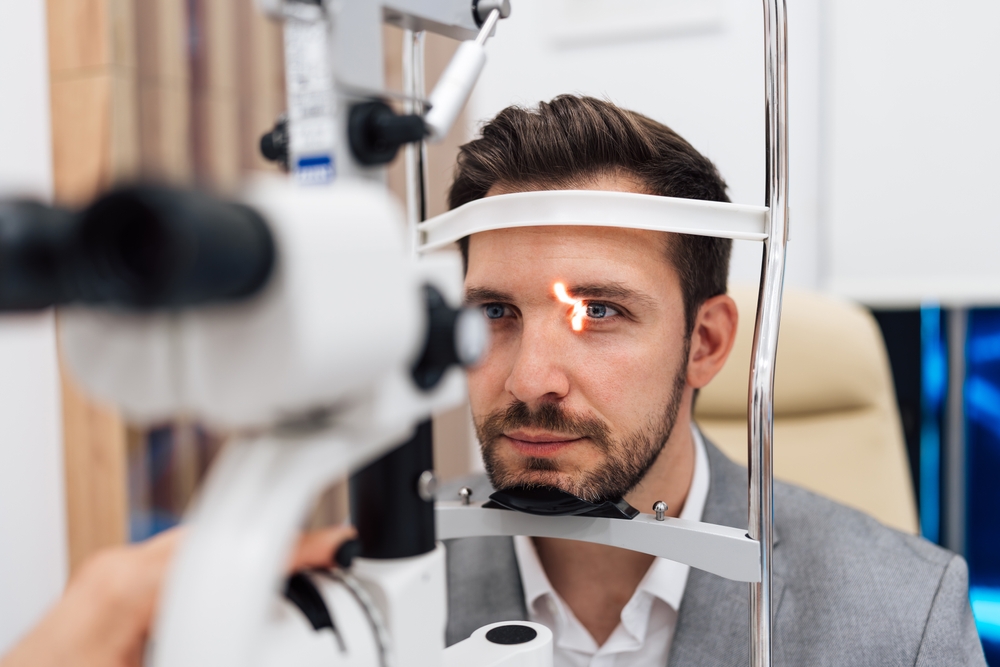The Role of Eye Exams in Identifying Overall Health Issues
Blog:The Role of Eye Exams in Identifying Overall Health Issues

Eye exams are more than just a checkup for your vision. They provide a unique window into your overall health, often revealing early signs of systemic health issues that you may not even be aware of. From detecting diabetes to identifying high blood pressure, your eyes can offer valuable insights into your body’s wellbeing. Here’s how regular eye exams can help spot potential health concerns before they become more serious.
The Eyes: A Window to Your Health
During a comprehensive eye exam, your optometrist doesn’t just assess your vision; they also examine the structures of your eyes, including the retina, blood vessels, and optic nerve. Many systemic diseases leave their mark on these areas, making an eye exam a critical tool for early detection.
Health Conditions Detected Through Eye Exams
• Diabetes: One of the most common health issues detected during an eye exam is diabetes. Diabetic retinopathy, which is damage to the blood vessels in the retina, can be one of the earliest signs of diabetes. Early detection through eye exams allows for better management of the condition, helping to prevent vision loss and other complications.
• High Blood Pressure: Hypertension, or high blood pressure, often shows up in the blood vessels of the eyes before it becomes noticeable in other parts of the body. Changes in the retina’s blood vessels, such as narrowing or leakage, can indicate elevated blood pressure levels. Identifying hypertension early can prevent more serious conditions like heart disease or stroke.
• High Cholesterol: The presence of yellowish deposits in the eyes or changes in the corneal arcus (a white or gray ring around the cornea) can be a sign of high cholesterol. This can indicate a higher risk of heart disease, making it crucial to address.
• Autoimmune Disorders: Some autoimmune diseases, such as lupus or multiple sclerosis, can cause inflammation in the eyes. Symptoms like dry eye, uveitis, or optic neuritis (inflammation of the optic nerve) may be detected during an eye exam and can prompt further investigation into potential autoimmune conditions.
• Thyroid Disease: Thyroid conditions, particularly hyperthyroidism, can affect the eyes. A condition known as Graves’ disease can cause bulging eyes, double vision, and changes in eye movement, all of which can be spotted during a routine eye exam.
Early Detection for Better Health Outcomes
Eye exams play a crucial role in catching health issues early, often before symptoms manifest in other areas of the body. Early detection through regular eye exams allows for timely intervention and treatment, which can significantly improve health outcomes. Whether it’s managing diabetes, controlling high blood pressure, or addressing autoimmune conditions, an eye exam is a vital step in maintaining your overall health.
How Often Should You Get an Eye Exam?
For most adults, it’s recommended to have an eye exam at least once a year. However, if you have a family history of eye diseases or systemic health conditions like diabetes or hypertension, more frequent visits may be necessary. Your optometrist can recommend the best schedule based on your individual needs and health risks.
Schedule Your Next Eye Exam with Eye Society Today
The importance of eye exams extends far beyond ensuring clear vision. They are an essential tool in identifying potential health issues that might otherwise go unnoticed. By scheduling regular eye exams at Eye Society, you’re taking an important step toward safeguarding not only your vision but your overall health.
Contact Eye Society to schedule your comprehensive eye exam today. Visit our office in Houston, Texas, or call (832) 582-7216 to book an appointment.



